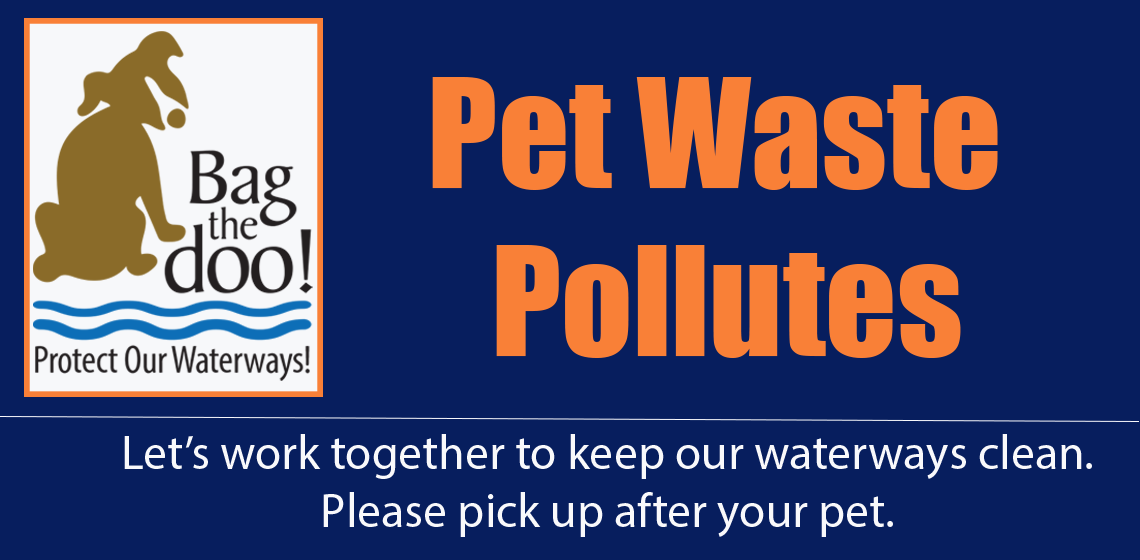The Scoop on Poop: Pet Waste Issues

We all love our pets and as responsible pet owners we need to properly dispose of pet waste whether it lands on the sidewalk, our neighbor’s lawn, in the park, or in our yard. Pet waste is more than a smelly nuisance. It is a pollutant carried to our waterways by stormwater runoff. It is a source of pathogens and nutrients all of which degrade water quality. In fact, in urban areas pet waste and fertilizers are among the top sources of nutrients to stormwater. Excess nutrients impair water quality, causing harmful and nuisance algal blooms (HNABs). Poor water quality in streams and rivers means higher water treatment costs and reduced recreational use.
A Cumulative Effect. Perhaps you are thinking that the small pile left on the lawn this morning couldn't cause that much harm. Consider this, according to survey data there are approximately 0.6 dogs for every US household (AVMA, 2018). So for a community with a population the size of Fayette County this translates to approximately 70,000 dogs. What does this mean in terms of pet waste? Using EPA's estimate that each dog produces 275 pounds of waste per year, this comes to over 19 million lbs of dog waste per year. If that waste is not disposed of properly, it is adding nutrients to our soils and waterways. So if you don't pick up after your pet, you are just piling on to the problem.
It matters. Every time you "doo" the right thing and pick up after your pet, you remove human additions of phosphorus (P) from our soil and water system. In Kentucky this is important because our soils are naturally rich in P and any additions increase the risk that excess P will be mobilized and transported to our waterways. Phosphorus is a key element in the development of algal blooms, which are colonies of algae that have grown out of control.
What you can do. One simple step is to pick up your pet's waste, no matter where it lands, drops or plops. While many people will pick up pet waste in public areas, such as parks or in their neighborhoods, it is equally important to pick it up at home. No matter where you are, properly dispose of pet waste in a waste receptacle.
Take the Pledge to show you care. Fayette County residents who take the pledge are eligible for a free gift as part of LFUCG's Stormwater Quality Projects Incentive Grant Program.
GLOVE IT, GRAB IT, TURN IT, TRASH IT! Watch this "how to" video to learn the steps to Bag the Doo!
https://www.youtube.com/watch?v=BxuI10RTWbY
Statistical Source: American Veterinary Medical Association (AVMA) Market Research Statistics
